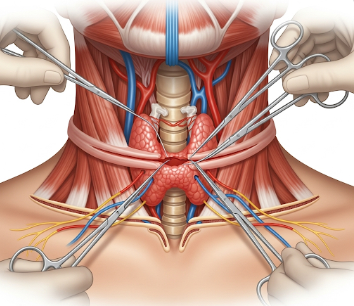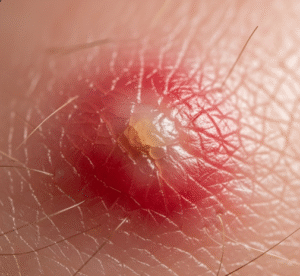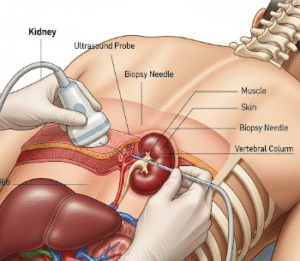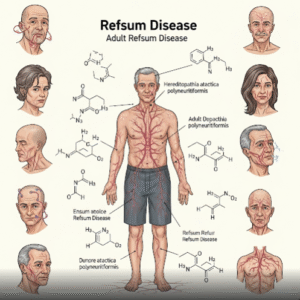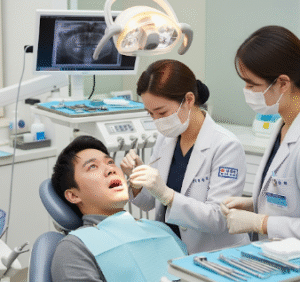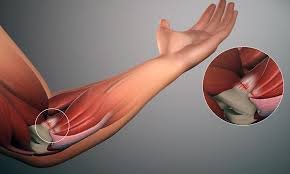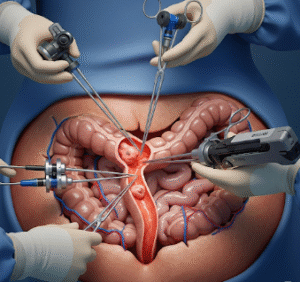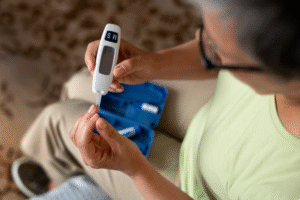Overview
A total thyroidectomy is a surgical procedure in which the entire thyroid gland is removed. It is often performed for patients with thyrotoxicosis, a condition caused by excessive thyroid hormone production. Thyrotoxicosis can result from Graves’ disease, toxic multinodular goiter, or thyroid adenomas.
In Korea, total thyroidectomy is widely available and performed in specialized endocrine and surgical centers. Korean hospitals use high-definition intraoperative monitoring, nerve protection systems, and minimally invasive techniques to ensure excellent outcomes with reduced complications.
What is Total Thyroidectomy (for Thyrotoxicosis)?
The thyroid is a butterfly-shaped gland located at the base of the neck. It regulates metabolism through secretion of thyroxine (T4) and triiodothyronine (T3). In thyrotoxicosis, the gland produces excessive amounts of these hormones, causing:
- ✦ Rapid heartbeat and palpitations
- ✦ Weight loss despite normal appetite
- ✦ Tremors and sweating
- ✦ Nervousness and irritability
- ✦ Goiter (enlarged thyroid)
Indications for surgery include:
- ➤ Severe or recurrent thyrotoxicosis not controlled by medications or radioactive iodine
- ➤ Large goiter causing breathing or swallowing difficulty
- ➤ Suspicion of coexisting thyroid cancer
- ➤ Patient preference for a definitive solution
What are the Benefits?
Total thyroidectomy offers several advantages for patients with thyrotoxicosis:
✅ Permanent cure for hormone overproduction
➤ Reduces risk of recurrence compared to partial thyroidectomy
✅ Relieves pressure symptoms from large goiters
➤ Improves quality of life and stabilizes metabolism
✅ Allows precise monitoring for thyroid cancer if present
➤ In Korea, modern techniques minimize nerve injury and scarring
Procedure Details
1) How should I prepare for Total Thyroidectomy?
Pre-surgery preparation is crucial for safety and successful outcomes:
- ✦ Thyroid function control: Medications (antithyroid drugs, beta-blockers) are given before surgery to stabilize hormone levels.
- ➤ Blood tests and imaging: Thyroid function tests, ultrasound, and sometimes CT scans.
- ✦ Laryngoscopy: To assess vocal cord function.
- ➤ Fasting: No food or drink for several hours before surgery.
- ✦ Medication adjustments: Stop blood thinners or adjust as advised.
- ➤ Patient counseling: Discussion of risks, need for lifelong thyroid hormone replacement.
2) What happens during the procedure Total Thyroidectomy?
The surgery is usually performed under general anesthesia and takes about 2–3 hours.
Steps include:
- ➤ A small incision is made in the lower front of the neck.
- ✦ The surgeon carefully exposes the thyroid gland.
- ➤ The recurrent laryngeal nerves (controlling vocal cords) and parathyroid glands (regulating calcium) are identified and preserved.
- ✦ The entire thyroid gland is removed.
- ➤ The incision is closed with fine sutures, often leaving a minimal scar.
In Korea, surgeons frequently use nerve monitoring systems and endoscopic or robotic approaches for better cosmetic and functional outcomes.
3) What happens after Total Thyroidectomy?
Post-surgery recovery usually involves:
- ✦ Hospital stay: 2–4 days.
- ➤ Monitoring calcium levels: since parathyroid glands may be temporarily affected.
- ✦ Thyroid hormone replacement therapy: lifelong levothyroxine tablets.
- ➤ Voice rest and monitoring: to check vocal cord function.
- ✦ Return to normal activities: within 2–3 weeks.
- ➤ Scar care: special Korean cosmetic closure techniques often minimize scarring.
Risks / Benefits
Possible Risks:
- ✦ Temporary or permanent hoarseness due to nerve injury
- ➤ Low calcium levels (hypocalcemia) if parathyroid glands are affected
- ✦ Bleeding or hematoma in the neck
- ➤ Infection (rare)
- ✦ Need for lifelong thyroid hormone replacement
Benefits:
- ✅ Definitive cure for thyrotoxicosis
- ✅ Prevention of recurrence
- ✅ Relief from compressive symptoms (difficulty swallowing/breathing)
- ✅ Improved metabolic stability
- ✅ In Korea, advanced monitoring lowers complication rates significantly
Recovery and Outlook
With proper care, most patients recover well and return to normal activities quickly.
- ✦ First 2 weeks: mild neck discomfort, gradual return to daily life.
- ➤ Months 1–2: stabilization of thyroid hormone replacement dose.
- ✦ Long-term: lifelong thyroid hormone medication, with routine blood tests.
- ➤ Prognosis: excellent, with resolution of thyrotoxic symptoms and improved quality of life.
Korean hospitals also offer personalized hormone management programs and long-term follow-up support for international patients.
When To Call the Doctor
After thyroidectomy, seek medical attention if you notice:
⚠ Persistent hoarseness or voice loss
⚠ Severe tingling or muscle cramps (low calcium)
⚠ Neck swelling or difficulty breathing
⚠ Fever or wound infection
⚠ Uncontrolled pain
Best Korea Option / Process
Korea is a global leader in thyroid surgery and endocrine care. Patients benefit from:
- ✦ Endocrine surgeons with international expertise
- ➤ Use of nerve monitoring and robotic systems for safety and cosmetic outcomes
- ✦ Affordable, high-quality care compared to Western countries
- ➤ Multilingual patient support and medical tourism services
- ✦ Comprehensive aftercare, including medication management and follow-up tests
Highlights of Total Thyroidectomy (for Thyrotoxicosis) in Korea
- ✅ Permanent cure for excessive thyroid hormone production
- ➤ Relieves symptoms and improves quality of life
- ✅ Advanced Korean surgical techniques minimize risks and scarring
- ➤ Requires lifelong but simple hormone replacement
- ✅ Korea offers world-class thyroid surgery and patient care

